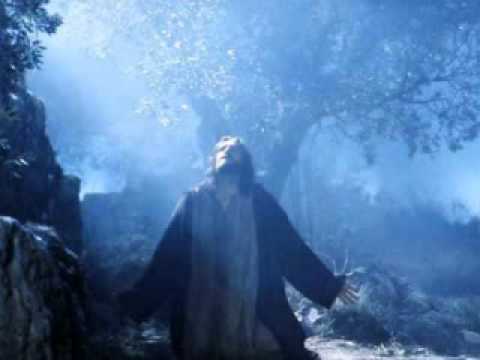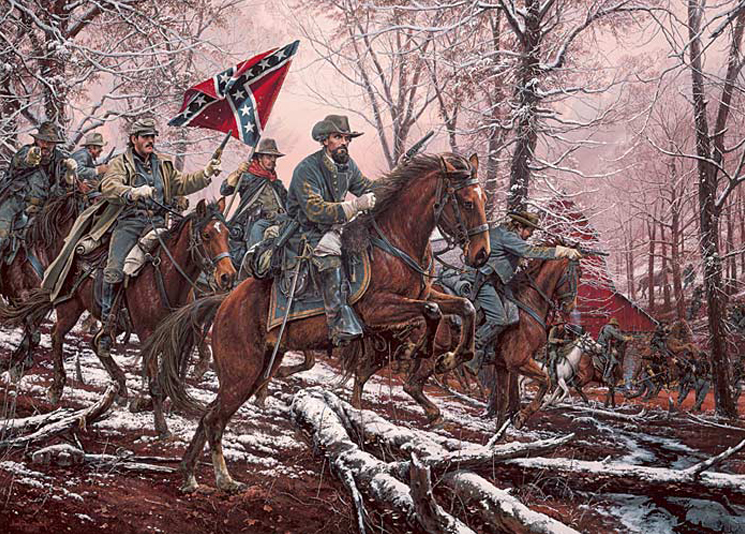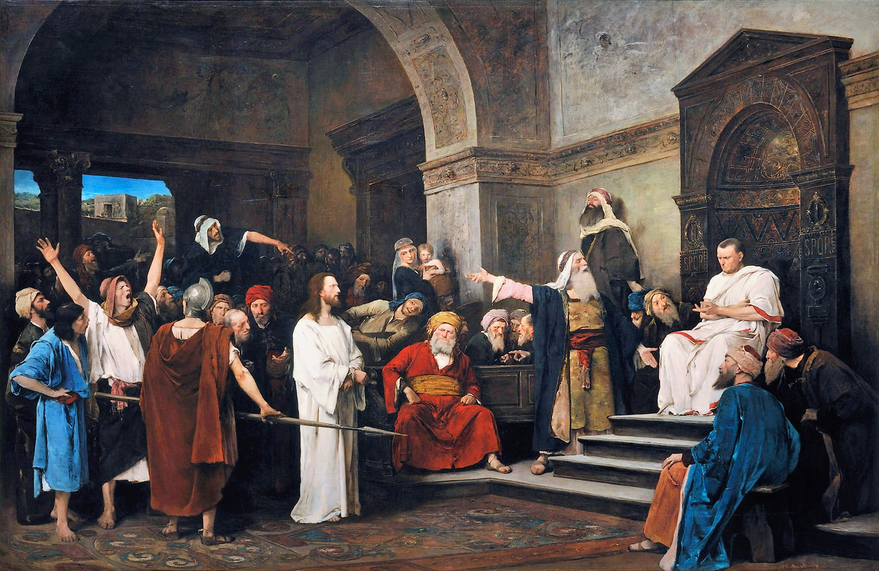
Editor’s note: The following sermon by W. M. Taylor is extracted from The World’s Great Sermons, Vol. VII (published 1908)
Pilate saith unto them, What shall I do, then, with Jesus, which is called Christ? – Matthew xxvii., 22.
During my late visit to my native land I had the great enjoyment of seeing, and somewhat carefully studying, Munkacsy’s famous picture of “Christ Before Pilate.” Rarely, if ever, had I been so much moved by a work of art; and I propose to give, as nearly as I can recall it, the sermon which it reached to me as I sat silently contemplating the figures, which, even as I looked at them, seemed to grow before me into life.
But, first, I must try to describe to you the picture itself. The canvas is large, and the figures, all of which are on the line of sight, are of life size. The scene is in the pavement or open court before the governor’s palace, which was called in the Hebrew tongue Gabbatha, and in which, after all his efforts to wriggle out of the responsibility of dealing with the case, Pilate ultimately gave up Jesus to be crucified. At one end of the court, on a raised bench, and dressed in a white toga, Pilate sits. On either side of him are Jews, each of whom has a marked and special individuality. The two on his left are gazing with intense eagerness at Christ. They are evidently puzzled, and know not well what to make of the mysterious prisoner. On his right, standing on one of the seats, and with his back against the wall, is a Scribe, whose countenance is expressive of uttermost contempt, and just in front of this haughty fellow are some Pharisees, one of whom is on his feet, and passionately urging that Jesus should be put to death, presumably on the ground that, if Pilate should let Him go, he would make it evident that he was not Cæsar’s friend. Before them again is a usurer, sleek, fat and self-satisfied, clearly taking great comfort to himself in the assurance that, however the matter may be settled, his well-filled money-bags will be undisturbed. Beyond him stands the Christ in a robe of seamless white, and with His wrists firmly bound; while behind, kept in place by a Roman soldier, standing with his back to the spectator, and making a barricade with his spear, which he holds horizontally, is a motley group of onlookers, not unlike that which we may still see any day in one of our criminal courts. Of these, one more furious than the rest is wildly gesticulating, and crying, as we may judge from his whole attitude, “Crucify Him! crucify Him!” and another, a little to the Savior’s left, but in the second row behind Him, is leaning forward with mockery in his leering look, and making almost as if he would spit upon the saintly one. There is but one really compassionate face in the crowd, and that is a face of a woman who, with an infant in her arms, most fitly represents those gentle daughters of Jerusalem who followed Jesus to Calvary with tears. Then, over the heads of the on-lookers, and out of the upper part of the doorway into the court, we get a glimpse of the quiet light of the morning as it sleeps upon the walls and turrets of the adjacent buildings. All these figures are so distinctly seen that you feel you could recognize them again if you met them anywhere; and a strange sense of reality comes upon you as you look at them, so that you forget that they are only painted, and imagine that you are gazing on living and breathing men.
But, as you sit awhile and look on, you gradually lose all consciousness of the presence of the mere on-lookers and find your interest concentrated on these two white-robed ones, as if they were the only figures before you. The pose of Christ is admirable. It is repose blended with dignity; self-possession rising into majesty. There is no agitation or confusion; no fear or misgiving; but, instead, the calm nobleness of Him who has just been saying, “Thou couldst have no power at all against me, except it were given thee from above; therefore he that delivered me unto thee hath the greater sin.” The face alone disappoints. Perhaps that may be owing to the lofty ideal we have of the divine Man, so that no picture of our Lord would entirely please. But though the painter has wisely abandoned the halo, and all similar conventionalisms of art, and has delineated a real man, for all which he is to be highly commended, yet the eyes which look so steadily at Pilate, as if they were looking him through, seem to me to be cold, keen, and condemnatory, rather than compassionate and sad. It is a conception of the Lord of the same sort as that of Doré, in his well-known picture of the leaving of the Prætorium, and the eyes have not in them that deep well of tenderness out of which came the tears which He shed over Jerusalem, and which we expect to see in them when He is looking at the hopeless struggle of a soul which will not accept His aid. It is said that the artist, dissatisfied with his first attempt, has painted the Christ face twice; but this, also, is a partial failure, and here, so at least it seemed to me as I looked upon it, is the one defect in his noble work. But if there is this defect, it is one which it shares with every other effort that human art has made to delineate the Lord. The Pilate, however, is well-nigh faultless. Here is a great, strong man, the representative of the mightiest empire the world has ever seen, with a head indicating intellectual force, and a face, especially in its lower part, suggestive of sensual indulgence. There is ordinarily no want of firmness in him, as we may see from the general set of his features; but now there is in his countenance a marvelous mixture of humiliation and irresolution. He cannot lift his eyes to meet the gaze of Christ; and while one of his hands is nervously clutching at his robe he is looking sadly into the other, whose fingers, even as we look at them, almost seem to twitch with perplexed irresolution. He is clearly pondering for himself the question which a few moments before he had addressed to the multitude, “What shall I do with Jesus which is called Christ?” He is annoyed that the case has been brought to him at all, and as he feels himself drifting on, against his own better judgment, toward yielding to the clamor of the multitude, he falls mightily in his own conceit, and begins to despise himself. He would, at that moment, give, oh, how much! to be rid of the responsibility of dealing with the Christ, but he cannot evade it; and so he sits there, drifting on to what he knows is a wrong decision, the very incarnation of the feeling which his own national poet described when he said, “I see and approve the better course; I follow the worse.” Thus, as we look at these two, we begin to discover that it was not Christ that was before Pilate so much as Pilate was before Christ. His was the testing experience. His was the trial; his too, alas! was the degradation; and at that coming day when the places shall be reversed, when Christ shall be on the judgment seat, and Pilate at the bar, there will still be that deep self-condemnation which the painter here has fixed upon his countenance. It is a marvelous picture, in many respects the most remarkable I ever looked upon, and, even from this imperfect description of it, you will easily understand how, as I sat intent before it, it stirred my soul to the very depths.
But now, with this portrayal of the scene before us let us see if we can account, first, for the hesitation of Pilate to give up the Lord, and then for his final yielding to the clamor of the people. Why all this reluctance on his part to send Jesus to the cross? He was not usually so scrupulous. A human life more or less gave him generally very little concern. He had all a Roman’s indifference for the comfort of those who stood in any respect in his way; and had no compunction, as we know, in mingling the blood of certain turbulent Jews with the very sacrifices which at the moment they were offering. Had Christ been a Roman citizen, indeed, he would most likely have been very watchful over His safety, for in regard to all such the imperial law was peculiarly strict, but the life of a mere Jew was a very small thing in his estimation. Wherefore, then, this unwonted squeamishness of conscience? It was the result of a combination of particulars, each of which had a special force of its own, and the aggregate of which so wrought upon his mind that he was brought thereby to a stand.
There was, in the first place, the peculiar character of the prisoner. A very slight examination had been sufficient to convince him that Christ was innocent of the charge which had been brought against Him. But in the course of that examination much more than the innocence of Christ had come to view. He had manifested a dignified patience altogether unlike anything that Pilate had ever seen; and His answers to certain questions had been so strangely suggestive of something higher and nobler than even the most exalted earthly philosophy that he could not look upon Him as a common prisoner. He was no mere fanatic; neither was He after the pattern of any existing school, whether Jewish, Greek, or Roman. There was about Him an “other-worldliness” which brought those near Him into close proximity, for the time, with the unseen; and an elevation which lifted Him above the tumult that was howling for His destruction. Probably Pilate could not have described it to himself, but there was something which he felt unusual and exceptional in this man, marking Him out from every other he ever had before him, and constraining him to take a special interest in His case. Add to this that his wife had sent to him that singular message—”Have thou nothing to do with that just man, for I have suffered many things this day in a dream because of him,”—a message which, in those days of mingled skepticism and superstition—for the two always go hand in hand—must have produced a deep impression on his mind. Moreover, there seemed some fatality about the case. He had tried to roll it over upon Herod, but that wily monarch sent the prisoner back upon his hands. He had attempted to release Him, as the Passover prisoner for the year, but neither was there any outlet for him in that, for the people had preferred Barabbas. And so the responsibility had come again to his own door, and could not be passed on to another. Still again, he saw that the Jews were acting most hypocritically in the matter. It was a new thing for them to be zealous for the honor of Cæsar, and he could easily see through the mask they wore into the envy and malice which were the motives for their conduct. The deeper he went into the case he discovered only the more reason for resisting their importunity, and, however, he looked at it, his plain duty was to set the prisoner free.
Why then, again we ask, was his perplexity? The answer is suggested by the taunt of the Jews, “If thou let this man go thou art not Cæsar’s friend; whosoever maketh himself a king speaketh against Cæsar.” He foresaw that if he resisted the will of the rulers he would make them his enemies, and so provoke them to complain of him to the emperor, who would then institute an inquiry into the administration of his office—and that he was not prepared to face. He had done things as a governor which would not bear the light, and so at the crisis of his life he was fettered by deeds of the past from doing that which he felt to be the duty of the present. You may, perhaps, remember that expression of the prophet, which thus reads in the margin: “Their doings will not suffer them to turn unto their God”: and that other, which affirms, concerning Israel: “Their own doings have beset them about.” Now these descriptions most accurately define the cause of Pilate’s perplexity here. His conduct in the past had been such that he had not the courage to take any course which might lead to an investigation of that. If he could deliver Christ without provoking that, then he would most cheerfully do so; but if by delivering Christ he would provoke that, then Christ must be given up to the cross. Hence his perplexity at the first, and hence, also, his yielding in the end. His past misdeeds had put him virtually into the power of those who were now so eager for the condemnation of the Christ. On three several occasions his arbitrariness had been such as all but to instigate a rebellion among the people, and his cruelty and contempt for justice, when he had a personal end to gain, were sure, upon appeal to the emperor, to be severely punished; so to save himself from banishment and disgrace, if not even death, he delivered over Jesus to the will of the Jews. He wished to do right in this case more than ever he had wished before; there was something about it which in his view made it more important that he should do right now than ever before; but through all his past official life he had, by his enormities and oppressions, been unconsciously weaving round himself a net, in the meshes of which he was now inextricably caught. His guilty conscience made him a coward at the very time when most of all he wanted to be brave. He had come to his “narrow place,” where he could turn neither to the right hand nor to the left, but must face the naked alternative “yes” or “no”; and he fell because in his former life, when he was thinking of no such ordeal, he had sold himself by his evil deeds into the power of the enemy.
Now, what a lesson there is in all this for us! Men think that they may live for the time being as they please, and that at a convenient season they can repent and turn to God. But the present is conditioning the future, and making it either possible or the reverse for us to do right in the future. He who neglects the laws of health every day, and lives in intemperance and excess of all kinds, is only making it absolutely certain that when fever lays him low he will die, for he has eaten out the strength of his constitution by his follies. And, in the same way, he who sets all morality at defiance in his ordinary conduct only makes it inevitable that when his convenient season does come, when his time of privilege and testing does arrive, he will fail to rise to the occasion, and be swept away into perdition. The tenor of our ordinary life determines how we shall pass through exceptional and crucial occasions, therefore let us bring that up to the highest level by doing everything as unto God, and then we shall be ready for any emergency.
Nor let me forget to add here, that in spite of all his efforts to keep back investigation, Pilate’s day of reckoning with the emperor did come. The Jews complained of him after all, in spite of his yielding to them now; and as the result he was banished, and afterwards, so tradition says, he committed suicide. Thus the ordeal and the disgrace came, notwithstanding all he did to avert them, and he had not under them the solace which he might have enjoyed if only he had stood firm on this great and memorable occasion. Therefore let us all, and especially the young, take to ourselves, as the first lesson from this deeply interesting history, that we should be careful not to hamper ourselves for the discharge of duty in the future by guilt of the present. By our conduct now we are either coiling cords around us which shall hold us fast at the very time when we most desire to be free, or we are forming and fostering a strength of character which, through God, will triumph over every temptation. If “to be weak is to be miserable,” it is no less true that to be guilty is to be weak. Preserve yourselves, therefore, from this danger, and seek above all other things to keep your consciences clean; then when you will need all your strength for a crisis, you will not sit, like Pilate here, in nervous perplexity bemoaning your helplessness even while you yield to the adversary; but you will shake the temptation from you with as much ease as the eagle shakes the dewdrop from his wing. Keep yourselves pure: so shall your youth be full of happiness, and you shall go forth out of it with no encumbering past to clog the wheels of your endeavor. How happy he whose youth thus leaves him with a smile and sends him forth upon the duties of manhood with a benediction! But he, how miserable! whose early years heap bitter maledictions on his head, and push him forward into active life with a conscience already laden with guilt, and a soul as weak before temptation as a reed is before the wind.
But while there is thus in this history a lesson for all time, I think Munkacsy, by the appearance of his wondrous picture now, has made it evident that there is also something in it specially adapted to these modern days. It is with artists in the choice of their subjects as it is with ministers in the selection of their themes. Both alike, consciously and unconsciously, and most frequently perhaps unconsciously, are affected by the spirit of their age. The atmosphere—literary, moral, political, and religious—which is round about them, and which they are daily breathing, does, insensibly to themselves, so influence them that their thoughts are turned by it into a channel different from that in which those of a former generation flowed. Hence, whether the painter would admit it or not, I see in this picture, at this juncture, at once a mirror of the times and a lesson for them. The question of Pilate, “What shall I do, then, with Jesus which is called the Christ?” is preeminently the question of the present age. No doubt we may say with truth that it has been the question of all the Christian centuries, and each one of them has faced it and solved it after its own fashion. It has tested the centuries even as it tested Pilate, and those in which Christ was rejected have been the darkest in the world’s history; while those in which He has been hailed as the incarnate God have been the brightest which the earth has ever seen, because irradiated with truth, and justice, and benevolence and purity. But tho we are always prone to exaggerate that in the midst of which we are ourselves, it seems to me that in no one age since that of the primitive Church has this jesting question been so prominent as in our own. All the controversies of our times, social, philosophical, and theological, lead up to and find their ultimate hinge in the answer to this inquiry, “Who is this Jesus Christ?” If He be a mere man, then there is for us nothing but uncertainty on any subject, outside of the domain of the exact sciences; and we must all become agnostics, holding this one negative article of belief, that nothing can be known about anything save that of which we can take cognizance with the bodily sense. But if He be incarnate God, then He brings with Him from heaven the final word on all subjects concerning which He has spoken; and though in His person He is the mystery of mysteries, yet, at once received, He becomes forthwith the solution of all mysteries, and faith in Him is at once the satisfaction of the intellect and the repose of the heart. It is perfectly natural, therefore, that all the controversies of the day should turn on Him. The lives of Christ which have been written during the last thirty or forty years would make in themselves a very respectable library; and the cry even of the sceptic is, “I could get on very well with unbelief, if I only knew what to make of Christ.” Yes, that is just the difficulty. Christ is here in the Scriptures a character portrayed in literature; He was in the world for thirty-three years, and lived a life exceptional in every respect, but most of all in the moral and spiritual departments, so that of Him alone perfection can be predicated; He has been ever since a most potent factor in history, for through His influence all that is pure, and noble, and exalted, and lovely and of good report, has come into our civilization. Now, these things have to be accounted for. If He was only a man, how shall we explain them? And if He was more than a man shall we not take His own testimony as to His dignity and mission? If we are to be unbelievers, we must account for Christ on natural principles; but if we cannot do that, then we must conceive Him as He claims to be conceived. There is no alternative. Those in the age who have the spirit and disposition of Pilate will anew reject Him! but those who are sincere and earnest in their inquiries will come ultimately out into the light, for “if any man be willing to do his will, he shall know of the doctrine whether it be of God.”
And what is true of the age, as a whole, is true also of every individual to whom the gospel is proclaimed. For each of us, my hearers, this is the question of questions, “What shall I do with Jesus which is called Christ?” Shall I reject Him and live precisely as if I had never heard His name? or shall I accept Him as the Lord from heaven in human nature, trust in Him as my Savior, and obey Him as my King? I must do the one or the other; and yet how many are seeking, like Pilate, to evade the question? They try to escape the responsibility of dealing with it as a direct alternative of yes or no. But as one has well said, “necessity is laid upon us. The adversaries of Christ press upon us to give our verdict against Him. We are troubled and perplexed, for we have long heard about Him, and have had each of us his own convictions. We would still remain neutral. We try—and try in vain—to escape from the spirit, the conversation, the literature, the question of the times. Again and again we wash our hands. But neither our silence nor our actions are of any avail; and so we are found sitting, conscious of the presence and the claims of our Savior, and, like Pilate, not daring to look at Him, as we puzzle over the answer which we must give to the question that is being forced upon us—Who is this Jesus Christ?” Perhaps this description accurately portrays someone here this morning.
If so, let me give him one parting word. It is this: You cannot evade the decision, but be sure that you look at the Christ before you give Him up. Nothing is so remarkable in the picture to which I have so often this day referred as the evident persistency with which Pilate keeps his eyes from Christ; and few things are so saddening as to meet with men who profess to have, and really have, difficulties about Christ, but who have never read the gospels or the New Testament with any attention.
Let me urge you earnestly, therefore, to study these gospels and epistles before you give your voice against the Lord, and I am very sure that if you ponder them thoroughly you will soon accept Him. Give over trying to solve all the difficulties and so-called discrepancies in the Scriptures which form the stock-in-trade of the infidel lecturer—all these are but as dust which he raises that he may blind your eyes to the really important question, “Who is Christ?” Settle that, and if you do, all other difficulties will vanish. Turn your face to the light, and the shadow will fall behind you. Look at the Christ before you give Him up. And remember, if you do reject Christ, you have still to account for Him. It is unreasonable for you, if you believe only in the natural and material, to leave such a phenomenon as Christ unexplained.
Yes, and I must add here that if you reject Him you must yet account to Him. Go, then, and ponder this text; yea, may it continue sounding in your inmost heart until you have determined to receive and rest upon Him as your only Savior, and say to Him, like Thomas, “My Lord and my God.”
______________________________________________
BIOGRAPHICAL NOTE
William Mackergo Taylor, Congregational divine, was born at Kilmarnock, Scotland, in 1829. He was for many years pastor of the Broadway Tabernacle, New York. He had an impressive presence and his delivery was marked by a magnetic earnestness. During the first ten years of his ministry he spoke memoriter, but subsequently wrote out his sermons with detailed care and preached them from manuscript, but their delivery was without the freedom and freshness of extemporaneous address. He came to regret this, for he said: “If I might speak from my own experience I would say, that memoriter preaching is the method which has the greatest advantages, with the fewest disadvantages.” He died in 1895.
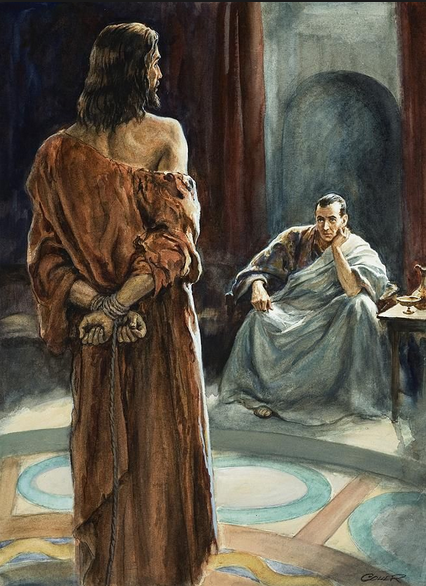
Sermon: Christ Before Pilate – Pilate Before Christ
Latest from Religion

The Weimar Years – Part 1
This started out as an attempt to better understand Weimar Germany by chronicling my reactions to the audiobook version of “The Weimar Years: Rise and Fall 1918-1933” by Frank McDonough. Writing my
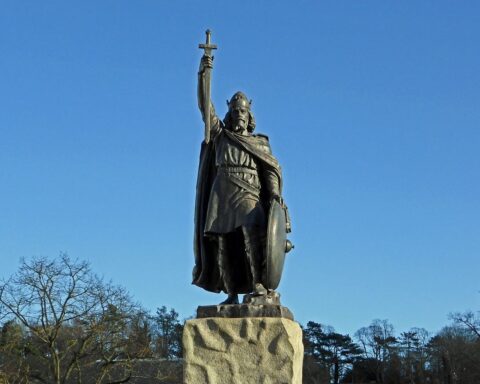
Alfredus Rex Fundator
"Alfred was a Christian hero, and in his Christianity he found the force which bore him, through calamity apparently hopeless, to victory and happiness."
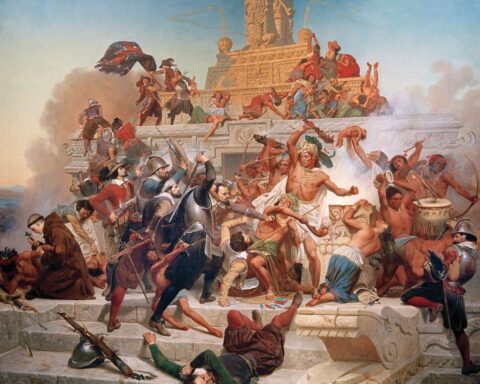
The Story of Cortez
It seemed to me that, having to speak tonight to soldiers, that I ought to speak about soldiers. Some story, I thought, about your own profession would please you most and teach
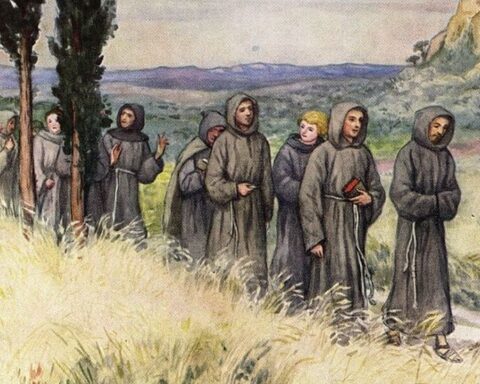
The Coming of the Friars
When King Richard of England, whom men call the Lion-hearted, was wasting his time at Messina, after his boisterous fashion, in the winter of 1190, he heard of the fame of Abbot
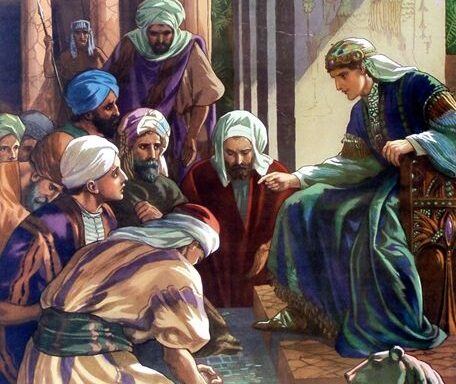
“Joseph” by Charles Kingsley
Editor’s note: The following is extracted from The Works of Charles Kingsley, Vol. 25 (published 1885). (Preached on the Sunday before the Wedding of the Prince of Wales. March 8th, third Sunday


